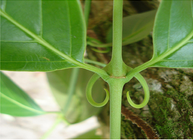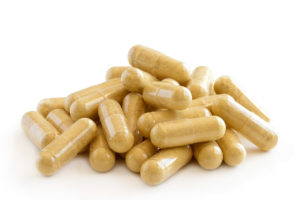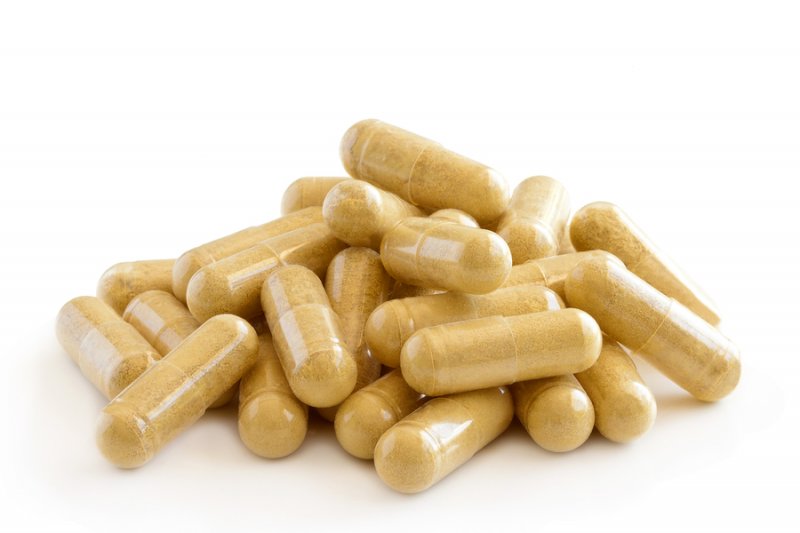Table of Contents
Cat’s Claw (Uncaria tomentosa, Uña de Gato, or Savéntaro) is a South American vine used as a nootropic with potent anti-inflammatory and antioxidant effects that support DNA repair, immune function and normal cell division.[i]
For cognitive health, Uncaria tomentosa has been used to prevent inflammation, promote cerebral circulation, fight amyloid plaques in Alzheimer’s and possibly even boost acetylcholine (ACh).
Cat’s Claw is a member of the plant family Rubiaceae, genus Uncaria that consists of at least 34 different species found in tropical forests of Southeast Asia, Africa, Central and South America.
When choosing a Cat’s Claw nootropic supplement, you need to know that at least 12 different and unrelated herbs have been marketed as Uña de Gato or Cat’s Claw.
The two South American species are Uncaria guanensis, a lower altitude shrub, and Uncaria tomentosa, a higher altitude woody vine found particularly in Peru.
The root and inner bark of the stalk of Uncaria tomentosa contains 30 known constituents including at least 17 alkaloids, along with a number of other compounds.
Researchers first thought it was the oxindole alkaloids that provided Cat’s Claw health benefits. More recently, a water soluble extract called C-Med-100® (AC-11®) was shown to possess strong antioxidant and anti-inflammatory effects.
C-Med-100® does not contain a significant amount of alkaloids. Instead the bioactive nootropic benefits of this vine are quinic acid esters.[ii]
When selecting a Cat’s Claw supplement for nootropic use, read the labels carefully. And choose only Uncaria tomentosa. We’ll have more about selecting the right supplement later in this post.
Cat’s Claw helps:
- Brain-Derived Neurotrophic Factor (BDNF). Research shows that Cat’s Claw boosts BDNF, tames NMDA activity, and repairs damaged DNA. Promoting an environment in your hippocampus for neurogenesis which is essential for learning, memory and mood. Low BDNF can lead to major depression, OCD, schizophrenia, and dementia.
- Neuroprotection. Cat’s Claw is a powerful antioxidant and anti-inflammatory. Cat’s Claw protects your brain from inflammation and damage from free radicals. Chronic inflammation has been linked to depression and dementia. Cat’s Claw also reduces the formation of plaques that are associated with Alzheimer’s Disease.
- Neurotransmitters. Cat’s Claw boosts Tryptophan levels which increases serotonin and can provide a calming effect. Cat’s Claw affects serotonin (5-HT2) receptors which helps alleviate pain.
Overview
Cat’s Claw (Uncaria tomentosa, Uña de Gato, or Savéntaro) is a large, woody South American vine that gets its name from the hook-like thorns on the leaf stem resembling the claws of a cat.

Cat’s Claw is indigenous to the Amazon rainforest and other tropical areas of South and Central America. Cat’s Claw has been used medicinally by the Aguaruna, Asháninka, Cashibo, Conibo, and Shipibo tribes of Peru for at least 2,000 years.
The Asháninka use Cat’s Claw for everything from asthma to urinary tract viral infections to cancer. I won’t go into the long list of ailments Cat’s Claw is used for here because we’re focusing on the cognitive benefits of this herb. Just rest assured, Cat’s Claw has an amazing track record.
Most of the commercially grown Cat’s Claw (Uncaria tomentosa) we get for nootropic use is from Peru. Cat’s Claw is rich in phytochemicals, alkaloids, glycosides, tannins, flavonoids, sterol fractions and other compounds.
Ignore the marketing hype of “good alkaloids”, “bad alkaloids” and “TAO-Free” for Cat’s Claw. Independent research since the early 1970’s in animals and humans have used everything from freeze-dried ground root and bark to individual extracts of specific Cat’s Claw compounds.
Cat’s Claw has been shown to decrease inflammation of arthritis[iii], prevent DNA damage[iv], reduce free radical damage[v], reduce cancer[vi], controls pain through serotonin (5-HT2) receptors[vii], and much more.
How does Cat’s Claw work in the Brain?
Cat’s Claw boosts brain health and function in several ways. But two in particular stand out.
- Cat’s Claw is a neuroprotectant. Cat’s Claw and its extracts have long been used to treat rheumatoid arthritis, asthma, chronic inflammation, immune disorders, pain, wound healing and human tumor cells.
Some of the more recent research has focused on the cognitive benefits while taking Cat’s Claw. And using Cat’s Claw to protect brain function and cognition.
One study demonstrated that an extract of Cat’s Claw could enhance DNA repair in the brain.[viii] Another study showed Cat’s Claw extract boosting Tryptophan levels which could have a profound effect on serotonin and mood.[ix] Dozens of other studies show Cat’s Claw possessing antioxidant properties, anti-inflammatory, an immune modulator, anti-tumor, antihypertensive, as well as prevention of stroke.[x]
- Cat’s Claw can increase memory and learning. Cat’s Claw extracts can help learning and memory in a healthy as well as a damaged brain.
Research shows certain alkaloid extracts of Cat’s Claw can help repair brain cells damaged by stroke or dysfunction of the acetylcholine receptors. The Cat’s Claw alkaloid Rhynchophylline is a NMDA antagonist. [xi] Selectively restricting NMDA receptors helps tone down hyperactivity and overstimulation. Providing a calm mind for clear cognition and learning.
How things go bad
Chronic stress, anxiety and free radicals (oxidation) damage your brain. This damage can manifest in several ways including memory loss, brain fog, anxiety, depression, and even neurodegenerative diseases like Alzheimer’s and Parkinson’s.
↓ Chronic stress reduces memory
↓ Free radicals kill brain cells
↓ Neuroplasticity declines degrading long-term potentiation[xii]
↓ Brain -Derived Neurotrophic Factor Declines
↑ NMDA receptors are over-active
Under conditions of chronic stress or depression caused by everyday living or chronic pain, your brain loses the capacity to transmit signals between neurons efficiently. Memory, cognition and decision-making all suffer as a result.
Cat’s Claw benefits
Research from hundreds of studies have shown that Cat’s Claw and its extracts:
- Potent antioxidant and anti-inflammatory
- Relieves pain through influence on serotonin receptors
- Enhances DNA repair
- Boosts immune health
- Suppresses tumor proliferation
- Protects against damage from stroke[xiii]
- Improve memory and cognition
- Restore the availability of acetylcholine
- Improves cerebral circulation
- Reduces stress
- Help repair brain cells
- Eliminate free radicals from within brain cells
How does Cat’s Claw feel?
Cat’s Claw is a potent anti-inflammatory and immune booster. Most neurohackers report a dramatic decrease in arthritis and joint pain.
Cat’s Claw has a reputation for reducing the symptoms of Lyme Disease and Crohn’s Disease.
Most who use Cat’s Claw regularly report they don’t get sick as often, experience less pain, and have an easier time getting to sleep and sleeping through the night.
Some neurohackers use Cat’s Claw to relieve an over-active mind. Cat’s Claw can calm racing thoughts and make it easier to focus.
Cat’s Claw Clinical Research
Cat’s Claw Improves Memory
Cat’s Claw has been reported to restore memory both in the lab and in user reviews. One method of increasing memory with Cat’s Claw may be through promoting long-term potentiation.
Rhynchophylline (Rhy) is an alkaloid isolated from Cat’s Claw that has long been recommended for treatment of diseases in the central nervous system. Researchers in China investigated using Rhy in stroke victims.
Rats were injected with Rhynchophylline once daily for 4 consecutive days before surgery, and then one more injection after surgery. The surgery created a stroke in the rats by severing a middle artery in their brain.
The team found that Rhynchophylline prevented brain damage from the stroke while increasing BDNF expression.[xiv] The Cat’s Claw extract also activated the PI3K/Akt/mTOR signaling pathway which is a necessary component of long-term potentiation.[xv]
Long-term potentiation is the strengthening of synapses between neurons which is one of the major mechanisms in the brain behind learning and memory.
Cat’s Claw Suppresses Cancer
Cat’s Claw has traditionally been used by indigenous cultures in South America and other parts of the world to treat cancer. And several studies caught my attention because I came across two Cat’s Claw customer reviews on how the herb helped them survive a dismal diagnosis of brain cancer.
Austrian researchers used Cat’s Claw extracts (isopteropodine (A1), pteropodine (A2), isomitraphylline (A3), uncarine F (A4) and mitraphylline (A5)) on human leukemia T cells on the lab.
Four of the five extracts not only stopped cancer cell growth, but killed the cancer cells outright.[xvi]
Another USA research team found that Cat’s Claw has the ability to regulate immune system cytokines that help your body’s defense against cancer.[xvii]
An Italian study investigated using Cat’s Claw extract on breast cancer. The researchers found that Cat’s Claw prevented the growth of 90% of breast cancer cells in the lab.[xviii]
A research team in Mexico found that Cat’s Claw extract stopped Wnt-signaling activity in cancer cells.[xix] The Wnt-signaling pathway is implicated in glioblastoma, the most common and most aggressive cancer that occurs in the brain.
Cat’s Claw Repairs DNA and Boosts Immune System
Researchers in Sweden used the C-MED-100 (AC-11®) extract of Cat’s Claw in rats and men.
Rats were given doses of 0, 5, 10, 20, 40 and 80 mg of the Cat’s Claw extract per kg of body weight for 8 consecutive weeks. White blood cell counts in the 40 and 80 mg treatment groups were significantly elevated over controls.
In male volunteers, healthy men were given 5 mg of Cat’s Claw extract per kg of body weight for 6 consecutive weeks. Again white blood cell count was significantly elevated in the male volunteers.
The researchers also found that DNA repair got a significant boost by Cat’s Claw extract after whole body irradiation in the rats.[xx]
A 2nd study by the same research group used C-MED-100 extract with 12 healthy men. The volunteers received either 250 mg of the extract, 350 mg of extract or a placebo daily for 8 weeks. Hydrogen peroxide was used to induce DNA damage in the men.
Both extracts provided a significant increase in DNA repair compared to the controls who received a placebo.[xxi]
Cat’s Claw Recommended Dosage
Cat’s Claw is well tolerated by most and considered non-toxic.
Cat’s Claw is available in tablets, capsules or as a water or alcohol extract tincture. Ground or freeze-dried Cat’s Claw bark can also be taken as a tea.
Cat’s Claw recommended dosage is one 100 mg capsule per day for arthritis. And one 250 or 350 mg capsule per day for cognitive and immune support.
Standardized Cat’s Claw vine or root bark extracts usually contain 3% alkaloids and 15% phenols.
Don’t mistake Uncaria tomentosa for Uncaria guianensis which is another type of Cat’s Claw from the Amazon basin. U. guianensis has a much lower alkaloid content.
Cat’s Claw Side Effects
Side effects are rare with Cat’s Claw. But may include diarrhea, dizziness or nausea.
Those with autoimmune diseases like systemic lupus erythematosus, skin grafts, tuberculosis or receiving organ transplants should not use Cat’s Claw because of its effects on the immune system. Cat’s Claw can stimulate the immune system and will counteract any medication you’re using to suppress your immune system.
Cat’s Claw is known to lower blood pressure and slow blood clotting. So if you have an issue with low blood pressure, or on high blood pressure medication you should not use Cat’s Claw.
Cat’s Claw may increase the risk of bleeding so don’t take this herb if you have a bleeding disorder, are on blood thinners, or are planning surgery.
If you are dealing with kidney disease you should avoid using Cat’s Claw.
Type of Cat’s Claw to buy
Cat’s Claw powdered inner bark of the vine is usually the least expensive form and comes in 1,000 mg capsules.
Cat’s Claw standardized extract usually contains 1.5% to 3% oxindole alkaloids and 15% phenols.
AC-11® (C-MED-100®) is a patented hot-water extract of Cat’s Claw. It’s standardized to 8% Carboxyl Alkyl Esters.
Savéntaro® POA Cat’s Claw is a standardized and patented form of Cat’s Claw with 1.3% pentacyclic oxindole alkaloids (POA) (260 mcg) and is purified to be free of tetracyclic oxindole alkaloids (TOA).
I have tried and recommend HealthyCell AC-11® or Pure Mountain Botanicals® Cat’s Claw
Nootropics Expert® Recommendation
Cat’s Claw standardized extract up to 250 – 350 mg per day
 I recommend using Cat’s Claw as a nootropic supplement.
I recommend using Cat’s Claw as a nootropic supplement.
Your body does not make Cat’s Claw. So you must take it as a supplement to get its effects.
This ancient herb has a long history of safe use as an herbal remedy in many parts of the world. Cat’s Claw (Uncaria tomentosa) is native to South America and the form referred to throughout this post.
Cat’s Claw is mostly used as an anti-inflammatory and immune system booster. Cat’s Claw is especially helpful to those dealing with the symptoms of Lyme or Crohn’s Disease. And for those dealing with arthritis, joint pain or Carpel Tunnel Syndrome.
AC-11® is often used in nootropic circles for cognitive support. Dosage of AC-11® is 350 mg per day.
Cat’s Claw can improve your mood and memory. And protect your brain from free radicals and the toxins you’re exposed to everyday.
Cat’s Claw as a nootropic has the potential to keep you mentally sharp for life. You can even out the stress and anxiety of your day by sipping Cat’s Claw tea. Or use a supplement as a cognitive enhancer.
I have tried and recommend HealthyCell AC-11® or Pure Mountain Botanicals® Cat’s Claw









Join The Discussion - 74 comments
Catherine Magee
November 7, 2021
THANKS, DAVID, SO VERY MUCH!!
An Incredible article. I have so many of these issues. I was in a horrible accident. Back in 2000, I had to relearn everything all over again. The surgeries I have gone through has been a living nightmare. I would have killed for this supplement back then when I was struggling so.
The Only Wonderful thing that happened to me. Was I died and was able to see my amazing Father who had died from MS and had been bed redden for the last 5 years of his life. But to see him whole and with So Much Zest for life was too Awesome for me! I was just so angry when my Grandmother stepped forward and said I could not stay. It literally tore my heart out. I still had 3 children at home to finish raising!!
But the magnificent felling of Nothing but Love and So Much Of it that you Felt so incredible that You never wanted to leave. And to have to come back and put everything back together again and go through all the surgeries and Pain has been so difficult!! All I know is that I followed God, and we will be back with all of them very soon.
With No More Pain and suffering! I would love to try this supplement. Which Brand do you recommend?
Thanks Again for a wonderful article!!
David Tomen
November 8, 2021
Catherine, your best option for a Cat’s Claw is a patented extract called AC-11® and you can get that is in this supplement: https://amzn.to/3o36DTi
Douglas
April 24, 2021
Hi, I am impressed at the amount of information you provide regarding Nootropics and nutrition. I have been diagnosed with Scleroderma which includes IL-6 inflammation. Do you know of a nutritional regimen that can reverse or control the damage done by this disease? Especially the loss of endurance and stamina? Thank you for any thoughts!
David Tomen
April 26, 2021
Douglas, the only thing I can think of is reducing proinflammaory cytokines including interleukin-6 and keeping them down to allow your body to do some repair.
Cat’s Claw is one option. These also help reduce proinflammatory cytokines: Artichoke Extract (Luteolin), Ginseng, L-Glutamine, Oat Straw, SAM-e, Vitamin B3 (Niacin), Vitamin B6 (P-5-P), Vitamin B8 (Inositol), and N-Acetyl L-Cysteine (NAC).
You will find reviews for each one of those supplements here: https://nootropicsexpert.com/nootropics-list/
Daka
November 5, 2020
Dear David,
i was wondering if you have ever experienced with devil cats claw ( uncaria rhynchophylla) and or wich one do you prefer?
Best regards
David Tomen
November 5, 2020
Daka, I’m only familiar with Uncaria tomentosa. There are something like 12 different types and do not share the benefits of Uncaria tomentosa as far as I know. Because they have differences in alkaloid content among other compounds found in this plant.
mathieu Ngombe
August 6, 2020
hello,my name is Mathieu;my suffering of Myelodysplastic syndrome;she can take cat’s claw
David Tomen
August 8, 2020
Matthieu, I’m not a doctor and certainly have no expertise in cancer. But we do have clinical evidence showing Cat’s Claw effective in suppressing different types of cancer. So it sounds like it could only help.
But I suggest printing out and showing my research to a real cancer doctor and see what they say.
Tom
June 2, 2020
Lysine is not on list Why is this???? I like it.
David Tomen
June 3, 2020
Tom, have not got to it yet. It is a precursor to the production of L-Carnitine along with methionine. Thanks for your comment. I’ll move up my list to research and review.
Karanjeet
November 11, 2020
Good advice
David Tomen
November 13, 2020
Thank you Karanjeet.
Paul Bernstein
March 24, 2020
Thank you for your prompt reply. Enzymatic Therapy is still in business, but has discontinued this product. It has worked wonders for my pinched nerve, as well as reducing inflammation. I will look into your recommendation.
Thank you,
Paul
Paul
March 24, 2020
Hi David: My name is Paul. I have been using Enzymatic Saventaro Cats Claw for the past 20+ years. I recently discovered it has been discontinued. There are so many products out there, I am wondering if you could recommend a comparable product.
Thank you,
Paul
David Tomen
March 24, 2020
Paul, I don’t know of anyone else using Savéntaro® POA Cat’s Claw. Did the company go out of business? I haven’t been able to find anything on them.
Have you tried an AC-11® extract? This one by Healthycell may be your next best choice: https://amzn.to/33Pj7Dt
MF4Mark
March 7, 2020
David, I have a plethora of health issues but the one I want to conquer is insomnia. I’ve had it most of my life and scant few things have helped, mostly combined with alcohol.
My doc prescribed an H1 antagonist for the insomnia and while it helps, I usually need to have wine with supper to feel the full effect. Either that or increase the dosage which I’d prefer to get away from both alcohol and meds.
So, I’m wondering if histamine causes arousal and an antihistamine makes one drowsy, would cat’s claw have the side effect of causing drowsiness given that it relieves inflammation?
David Tomen
March 9, 2020
Mark, first let’s talk about antihistamines because it’s important. A study published in 2015 had tracked 3,500 men and women ages 65 and older for 10 years who use antihistamines. 800 of those volunteers developed dementia during that 10 year period. https://jamanetwork.com/journals/jamainternalmedicine/fullarticle/2091745
They developed dementia because antihistamines negatively affect acetylcholine. And acetylcholine is needed for learning and memory. So you do not want to use antihistamines for sleep long-term if you want to keep a clear head.
Cat’s Claw on the other hand boosts Tryptophan which is a precursor to serotonin. So it provides a calming effect. Not so much that it’ll make you sleepy. It just calms you while restoring acetylcholine receptors, is anti-inflammatory and boosts BDNF needed for brain repair and long-term memory.
MF4Mark
March 9, 2020
Thanks John. Yes I’d heard about the risk of dementia, hence my desire to wean off.
I knew cats claw doesn’t work on the hitldtamine receptors per se, I was thinking maybe it blocked them though.
To another poster you suggested stacking. In your opinion would it be safe to stack Cat’s Claw, Devils Claw, and Indian Frankincense (for oral use)?
David Tomen
March 11, 2020
Mark, not sure what other ‘poster’ you were referring to so I’ll jump in here. I suggest you look at the “mechanism of action” for Cat’s Claw in the brain. Then research the “mechanism of action” for Devil’s Claw and Frankincense in the brain. Then compare all three and see if there are any similarities. If any of them act exactly the same way in the brain.